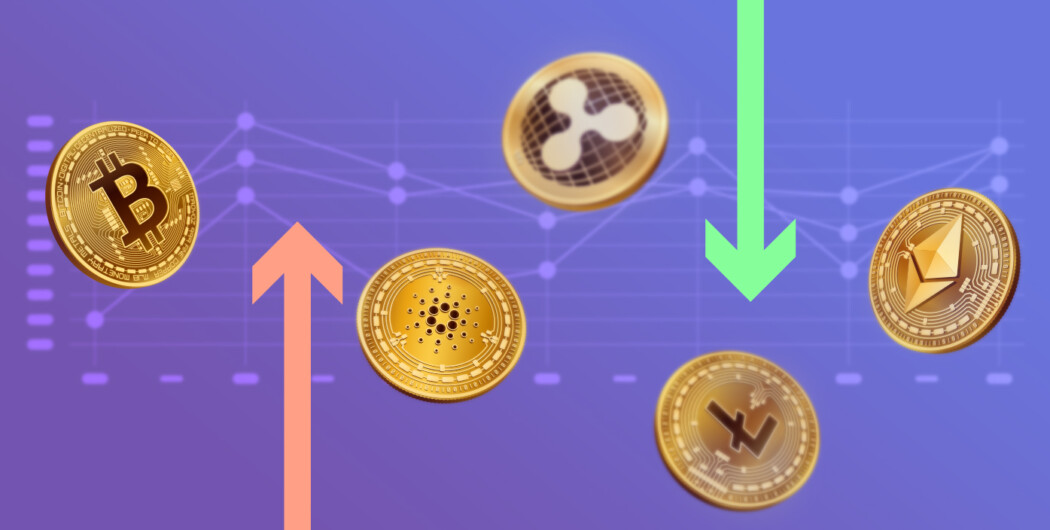

Even though cryptocurrencies have been in existence for quite some time, there is still a considerable portion of people who have yet to fully embrace them. Surprisingly, the concept of cryptocurrencies can be traced all the way back to the 1980s, when visionary cryptographer David Chaum proposed the concept of digital cash. However, it wasn’t until the late 2000s, with the emergence of Bitcoin, that the first actual cryptocurrency gained widespread recognition.
Despite this long history, cryptocurrencies remain a relatively new and unfamiliar concept for many. So, let’s clear out how to buy and sell crypto so that you, too, can confidently participate in this digital revolution.
Preparing for cryptocurrency trading

Before diving into the world of cryptocurrency trading, it’s crucial to lay a solid foundation and prepare yourself for the journey ahead.
Understanding cryptocurrency
Firstly, learn about blockchain technology, the underlying foundation of most cryptocurrencies. Next, familiarize yourself with different types of cryptocurrencies (Bitcoin, altcoins, stablecoins).
Moreover, it is important to be aware of the risks associated with crypto trading. Volatility, liquidity concerns, security vulnerabilities, and regulatory uncertainties are among the challenges faced in this field.
Setting up a wallet
A software wallet makes more sense for traders since they offer better convenience and easier accessibility. This will act as a digital storage space for your cryptocurrencies. Then, follow the setup instructions provided by the wallet provider, which typically involve creating a strong password or PIN.
Researching and choosing the right cryptocurrency
Things to look for on a cryptocurrency’s website:
- It’s up-to-date and easy to use
- Clean and free of spelling and other errors
- Discloses the team members and partnerships
- Clearly defines the token’s objective
- Offers a white paper (Coindesk)
While the criteria mentioned earlier are particularly relevant for lesser-known cryptocurrencies, please note that established coins also require careful evaluation.
Selecting a cryptocurrency exchange
You’ll want to look for an exchange that’s well-established, with at least a five-year track record. (Wall Street Journal)
Prioritize reputation, security, and supported cryptocurrencies; consider trading volume, user experience, and fees; ensure reliable customer support and regulatory compliance. All of these factors will impact the trajectory of your trading journey.
Reading the markets
One aspect of this is conducting a thorough fundamental analysis to understand the underlying factors that can influence cryptocurrency prices. While this type of analysis helps assess the intrinsic value and long-term prospects of a cryptocurrency, short-term traders who aim to profit from market fluctuations will also need technical analysis. So, in addition to fundamentals, employ technical analysis techniques to analyze price trends, chart patterns, and indicators.
Moreover, consider sentiment analysis by staying connected to social media platforms, news outlets, and online forums. Pay attention to the discussions, opinions, and reactions of the crypto community and industry experts.
Structure of a crypto trade

When learning how to buy and sell Bitcoin or other cryptos, you should understand the different parties involved.
The order book consists of buy orders and sell orders placed by traders on a crypto exchange. When a buyer’s bid price matches a seller’s ask price, a trade is executed. The agreed-upon price becomes the market valuation for the asset at that moment. The order book constantly updates as new buy and sell orders are placed, reflecting the supply and demand dynamics of the market.
What traders aim to do is profit from these price movements by buying low and selling high or by taking advantage of short-term price discrepancies. And the fluctuating prices that make it happen are due to market sentiment, news events, and trading volumes.

Buying cryptocurrency
Assuming you have a funded account on a cryptocurrency exchange, follow these steps to place a trade and buy cryptocurrency:
- Log in to your account. Access your account on the exchange platform using your credentials.
- Navigate to the trading section. Locate the trading section or tab on the platform, which may be labeled as Trade, Buy/Sell, or something similar.
- Select the cryptocurrency asset. Most exchanges offer more than one type of cryptocurrency, so select the one you wish to purchase.
- Enter the trade details. Specify the amount of the cryptocurrency you wish to buy. Some exchanges allow you to enter the amount in the crypto itself, while others may require you to enter the amount in your account’s base currency (such as USD or EUR).
- Set the buy order. The two common types are market order (at the current market price) and limit order (a specific price).
- Review and confirm the trade. Double-check the details of your buy order, including the amount, price, and any applicable fees. Make sure all the information is accurate.
- Execute the trade. Click the Buy or Place Order button to execute the trade. The exchange will process your order, match it with a suitable sell order, and complete the transaction.
Selling cryptocurrency
Here, the process is not that different:
- Deposit the crypto. Transfer the crypto you wish to sell from your wallet to your exchange account.
- Navigate to the trading interface. Look for the section or tab where you can place a sell order for the cryptocurrency you want to sell.
- Place a sell order. Specify the details of your order, including the amount or quantity of the crypto you want to sell. Choose the appropriate order type and set any additional parameters as required.
- Review and confirm the order. Ensure that everything is accurate and meets your requirements.
- Execute the sell order. The exchange will process the order, and if there is a buyer willing to purchase at your specified price, the transaction will be completed. You should receive the funds in your account on the exchange.
Just so you know, the trading process can vary depending on the specific instrument you choose, such as crypto CFDs, trading pairs, or other methods.
Security and risk management
It’s important to keep your cryptocurrency holdings in wallets rather than leaving them on exchanges, as exchanges are more susceptible to hacking attempts. But even then, you need to choose secure wallets based on reputation, reviews, and security features. Other things on the topic of security: always verify the authenticity of websites, double-check email senders, and exercise caution when encountering suspicious links or attachments.
As for proper risk management, diversify your portfolio across different cryptocurrencies to space out risk and avoid overexposure to a single asset. And consider implementing stop losses to automatically sell your assets if prices drop below a predetermined threshold.
Continuous learning and staying informed

Making your first trades is definitely exciting. However, to truly thrive in this ever-evolving landscape, continuous learning and staying informed are the secret ingredients. Get ready to embrace knowledge, tap into reliable resources, engage with the vibrant community, analyze market data, and learn from experience to take your trading skills to new heights.
In some sense, the best way to buy and sell cryptocurrency is to approach it with a combination of strategic thinking and a thirst for knowledge. So embrace the new opportunities and stay curious!
Sources:
7 Key Ways to Evaluate a Cryptocurrency Before Buying It, CoinDesk
How to set up a crypto wallet, Coinbase
7 Rules Of Risk Management For Cryptocurrency Users, HackRead







